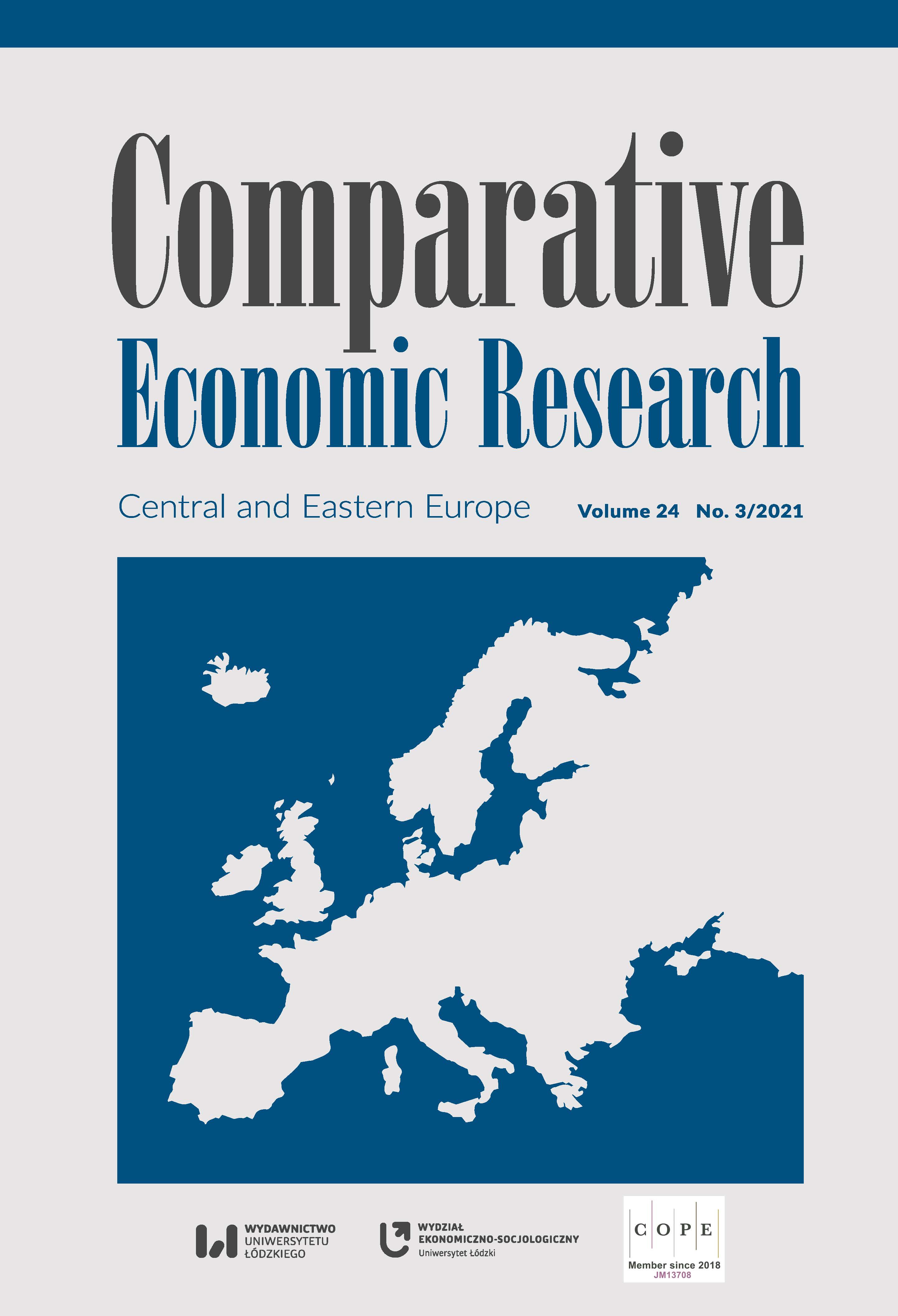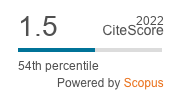Sztuczna inteligencja w kontekście globalnej mobilności zasobów. Co z tego wynika?
DOI:
https://doi.org/10.18778/1508-2008.24.23Słowa kluczowe:
sztuczna inteligencja, globalizacja, zatrudnienieAbstrakt
Sztuczna inteligencja musi być kontrolowana w bardziej skuteczny sposób. Dziś stoimy w obliczu wzrostu populizmu, postaw antyimigracyjnych i rozwoju nieliberalnych demokracji. Dowodzi to tego, że zachodnie umowy społeczne nie jest już w stanie poradzić sobie z konsekwencjami słabości państwa narodowego i rosnącej roli potężnych międzynarodowych korporacji nastawionych na zysk. Te ostatnie są silniejsze od państwa narodowego, podejmują autonomiczne decyzje o alokacji czynników produkcji na arenie światowej, zatrudniają maszyny zamiast ludzi, biorą odpowiedzialność za pracowników lub nie, decydują o zanieczyszczeniu środowiska toksycznymi odpadami czy nie. AI daje międzynarodowym korporacjom jeszcze więcej mocy.
Pobrania
Bibliografia
Acemoglu, D., Autor, D., Dorn, D., Hanson, G., Price, B. (2014), Import competition and the great U.S. employment sag of the 2000s, “NBER Working Paper 20395”, National Bureau of Economic Research, Cambridge, https://doi.org/10.3386/w20395
Google Scholar
DOI: https://doi.org/10.3386/w20395
Annoni, A., Benczur, P., Bertoldi, P., Delipetrev, B., De Prato, G., Feijoo, C., Fernandez Macias, E., Gomez Gutierrez, E., Iglesias Portela, M., Junklewitz, H., Lopez Cobo, M., Martens B., Figueiredo do Nascimento, S., Nativi, S., Polvora, A., Sanchez Martin, J.I., Tolan, S., Tuomi, I., Vesnic Alujevic, L. (2018), Artificial Intelligence: A European Perspective, Publications Office of the European Union, Luxembourg, http://doi.org/10.2760/936974
Google Scholar
DOI: https://doi.org/10.2760/936974
Breton, T.R. (2013), Were Mankiw, Romer, and Weil Right? A Reconciliation of the Micro and Macro Effects of Schooling on Income, “Macroeconomic Dynamics”, 17 (5), pp. 1023–1054, https://doi.org/10.1017/S1365100511000824
Google Scholar
DOI: https://doi.org/10.1017/S1365100511000824
Bureau of Labor Statistics, Geneva, 2016.
Google Scholar
Caliendo, L., Dvorkin, M., Parro, F. (2015), The impact of trade on labour market dynamics, “NBER Working Paper 21149”, National Bureau of Economic Research, Cambridge, https://doi.org/10.3386/w21149
Google Scholar
DOI: https://doi.org/10.3386/w21149
Cardarelli, R., Lysinyan, L. (2015), US Total Factor Productivity Decline: Evidence from the U.S. States, “IMF Working Paper”, 15/116, https://doi.org/10.5089/9781513520834.001
Google Scholar
DOI: https://doi.org/10.5089/9781513520834.001
Census Bureau, Business Dynamics Statistics, 2014.
Google Scholar
Dorn, D., Hanson, G. (2013), The China syndrome: Local labor market effects of import competition in the United States, “NBER Working Paper 18054”, National Bureau of Economic Research, Cambridge, https://doi.org/10.3386/w18054
Google Scholar
DOI: https://doi.org/10.3386/w18054
Dorn, D., Hanson, G. (2016), The China shock: Learning from labor market adjustment to large changes in trade, “NBER Working Paper 21906”, National Bureau of Economic Research, Cambridge, https://doi.org/10.3386/w21906
Google Scholar
DOI: https://doi.org/10.3386/w21906
Eager, J., Whittle, M., Smit, J., Cacciaguerra, G., Lale-Demoz, E. (2020), Opportunities of Artificial Intelligence, European Parliament, Policy Department for Economic, Scientific and Quality of Life Policies, Bruxelles 2020. https://www.europarl.europa.eu/RegData/etudes/STUD/2020/652713/IPOL_STU(2020)652713_EN.pdf (accessed: 9.07.2021).
Google Scholar
Elsby, M., Hobijn, B., Sahin, S. (2013), The Decline of the U.S. Labor Share, Brookings Papers on Economic Activity, Brookings Institution Press, Washington, https://doi.org/10.1353/eca.2013.0016
Google Scholar
DOI: https://doi.org/10.1353/eca.2013.0016
Ernst & Young (2018), Artificial Intelligence in Europe. Outlook for 2019 and beyond. How 277 benefit the most from AI, Microsoft Western Europe.
Google Scholar
Gauthier, D. (1988), Hobbes’s Social Contract, Noûs 22, Wiley, https://doi.org/10.2307/2215553
Google Scholar
DOI: https://doi.org/10.2307/2215553
Gauthier, D. (1990), Moral Dealing: Contract, Ethics, and Reason, Cornell University Press, Ithaka, https://doi.org/10.7591/9781501745799
Google Scholar
DOI: https://doi.org/10.7591/9781501745799
International Labor 2014, Report prepared for the G20 Labor and Employment Ministerial Meeting Melbourne, Australia, 10–11 September 2014 and OECD 2015 Report.
Google Scholar
Lawrence, R.Z. (2015a), Recent Declines in Labor’s Share in US Income: A Preliminary Neoclassical Account, “NBER Working Paper 21296”, National Bureau of Economic Research, Cambridge, https://doi.org/10.3386/w21296
Google Scholar
DOI: https://doi.org/10.3386/w21296
Lawrence, R.Z. (2015b), Explaining recent declines in labour’s share in US income, https://voxeu.org/article/explaining-recent-declines-labour-s-share-us-income (accessed: 20.11.2019).
Google Scholar
Mankiw, G., Romer, D., Weil, D. (1990), A contribution to the empirics of economic growth, “NBER Working Paper 3541”, National Bureau of Economic Research, Cambridge, https://doi.org/10.3386/w3541
Google Scholar
DOI: https://doi.org/10.3386/w3541
Mankiw, G., Romer, D., Weil, D. (1992), A contribution to the empirics of economic growth, “Quarterly Journal of Economics”, 107 (2), pp. 407–437, https://doi.org/10.2307/2118477
Google Scholar
DOI: https://doi.org/10.2307/2118477
McKinsey & Company (2018), Digitization, AI, and the future of work: Imperatives for Europe, European Union summit.
Google Scholar
Merling, L. (2016), The looming Threat of automation: The data show a different story, Center for Economic and Policy Research, Washington, http://www.cepr.net (accessed: 17.11.2019).
Google Scholar
OECD (2018), Sovereign borrowing outlook for OECD countries, Paris.
Google Scholar
OECD (2019), SME and entrepreneurship outlook, Paris.
Google Scholar
Rousseau, J.J. (1987), The Basic Political Writings, trans. D.A. Cress, Hackett Publishing Company, Indianapolis, 1987.
Google Scholar
Solow, R. (1956), A contribution to the theory of economic growth, “Quarterly Journal of Economics”, 70 (1), pp. 65–94, https://doi.org/10.2307/1884513
Google Scholar
DOI: https://doi.org/10.2307/1884513
Stolper, W.F., Samuelson, P.A. (1941), Protection and real wages, “The Review of Economic Studies. Oxford Journals”, 9 (1), pp. 58–73, https://doi.org/10.2307/2967638
Google Scholar
DOI: https://doi.org/10.2307/2967638
Swan, T. (1956), Economic growth and capital accumulation, “Economic Record”, 32 (2), pp. 334–361, https://doi.org/10.1111/j.1475-4932.1956.tb00434.x
Google Scholar
DOI: https://doi.org/10.1111/j.1475-4932.1956.tb00434.x
World Economic Forum, Davos, (2017), https://www.weforum.org/agenda/archive/artificial-intelligence-and-robotics/ (accessed: 17.11.2019).
Google Scholar
Pobrania
Opublikowane
Jak cytować
Numer
Dział
Licencja

Utwór dostępny jest na licencji Creative Commons Uznanie autorstwa – Użycie niekomercyjne – Bez utworów zależnych 4.0 Międzynarodowe.











